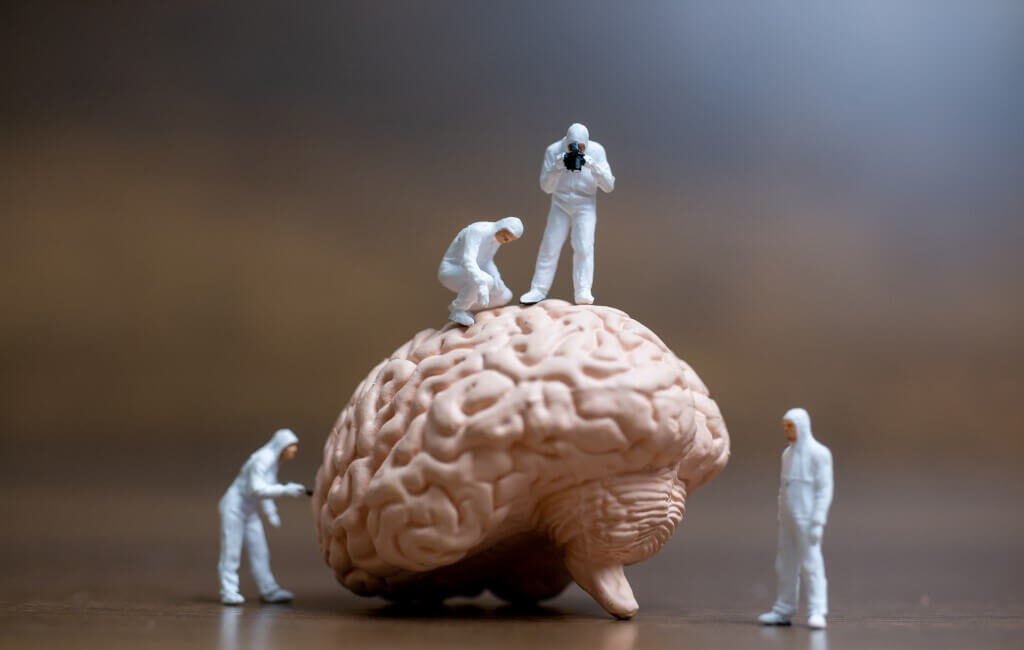In the realm of mental health problems therapy, it is essential to approach addiction not as a disease but as a symptom—a response to circumstances and environments that cause distress and contribute to addiction-based behaviors. Nora D. Volkow, M.D.’s approach sheds light on the significance of building healthy coping skills in mental problems therapy and finding alternative ways to address emotional challenges without resorting to substance use.
When you find yourself grappling with mental health problems, it is crucial to recognize that substance use may seem like a coping mechanism to alleviate your pain. However, by building healthy coping skills, you can discover alternative pathways to navigate the complexities of your emotions and find relief.
- Understanding Triggers and Underlying Issues: Mindfully identify the triggers that contribute to your distress and recognize any underlying issues that may be influencing your mental well-being. By understanding these factors, you can develop insights into the root causes of your challenges.
- Therapeutic Approaches: Seek professional help from therapists specializing in mental problems therapy. Therapies like cognitive-behavioral therapy (CBT), dialectical behavior therapy (DBT), or acceptance and commitment therapy (ACT) can provide you with tools to address negative thought patterns, regulate emotions, and build healthy coping skills.
- Embracing Self-Care Practices: Prioritize self-care as an integral part of your journey toward mental well-being. Engage in activities that bring you joy, reduce stress, and promote relaxation. These may include exercise, mindfulness practices, journaling, creative outlets, or spending time in nature.
- Developing Supportive Relationships: Surround yourself with individuals who uplift and support your journey toward improved mental health. Seek out support groups, both online and in-person, where you can connect with others who have similar experiences. Building a network of understanding individuals can provide validation, empathy, and encouragement.
- Exploring Alternative Therapies: Complementary therapies such as art therapy, music therapy, animal-assisted therapy, or mindfulness-based approaches can complement traditional therapy and offer additional avenues for self-expression, stress reduction, and emotional healing.
By building healthy coping skills and exploring alternative approaches to managing mental health problems, you empower yourself to find sustainable solutions that do not rely on substance use. It is crucial to remember that you do not have to face these challenges alone. Seeking professional help is paramount to guide you through your mental health journey and provide you with the tools necessary to build resilience and well-being.
Lets delve deeper into various strategies that can empower you to find alternatives to substance use and develop resilience in the face of mental challenges.
Identifying and Managing Triggers
- Understand your personal triggers: Reflect on situations, emotions, or environments that contribute to stress or exacerbate your mental problems. Identifying these triggers is crucial for developing effective coping strategies.
- Develop a trigger management plan: Create a personalized plan to manage triggers, incorporating techniques such as mindfulness, deep breathing exercises, grounding techniques, or engaging in a preferred calming activity.
Exploring Therapeutic Approaches
- Cognitive-Behavioral Therapy (CBT): CBT focuses on identifying and modifying negative thought patterns and behaviors, helping you develop healthier coping mechanisms and adaptive responses to challenges.
- Dialectical Behavior Therapy (DBT): DBT combines cognitive-behavioral techniques with mindfulness practices, assisting you in regulating emotions, improving interpersonal effectiveness, and tolerating distress without resorting to substance use.
- Acceptance and Commitment Therapy (ACT): ACT emphasizes accepting difficult emotions and thoughts while committing to taking actions aligned with your values. It promotes psychological flexibility and resilience in the face of challenges.
Developing Self-Care Practices
- Engage in regular physical exercise: Physical activity releases endorphins, improves mood, reduces stress, and enhances overall well-being.
- Practice mindfulness and meditation: Cultivate present-moment awareness to reduce anxiety, improve emotional regulation, and promote mental clarity.
- Prioritize adequate sleep: Establish a consistent sleep routine and create a sleep-friendly environment to ensure restorative rest, as sleep plays a crucial role in mental health.
Building Supportive Relationships
- Strengthen your support network: Seek connections with individuals who support your mental health goals. Engage in open and honest conversations, sharing your challenges and triumphs.
- Join support groups: Participate in support groups that focus on mental health, where you can find understanding, empathy, and shared experiences.
Exploring Alternative Therapies
- Art therapy: Engage in creative expression through art, allowing emotions to surface and providing a cathartic outlet for self-expression and healing.
- Music therapy: Utilize the power of music to uplift mood, reduce stress, and promote emotional well-being. Explore playing instruments, singing, or simply listening to music mindfully.
- Nature-based activities: Spend time in nature, whether through gardening, hiking, or simply enjoying the outdoors. Nature has a calming effect and can enhance your overall sense of well-being.
Remember, seeking professional help is vital in your journey to build healthy coping skills and find alternatives to substance use. Mental health professionals can offer guidance, support, and evidence-based techniques tailored to your unique needs.
FAQs:
- FAQ 1: How long does it take to develop healthy coping skills? Answer: The development of healthy coping skills is a gradual process that varies for each individual. It depends on various factors such as personal circumstances, dedication, and consistency. Be patient and allow yourself time to practice and integrate new coping strategies into your daily life.
- FAQ 2: Can I practice these coping skills on my own, or do I need professional guidance? Answer: While practicing coping skills on your own is possible, professional guidance is highly recommended. Therapists can provide valuable insights, personalized strategies, and ongoing support to help you navigate the challenges and maximize the effectiveness of your coping skills.
- FAQ 3: What if I relapse or struggle with maintaining healthy coping skills? Answer: Relapse or difficulties in maintaining healthy coping skills can be part of the recovery process. It is important to remember that setbacks are not failures but opportunities for growth. Reach out to your support network, including therapists or support groups, for guidance and encouragement. Learn from the experience and adjust your coping strategies accordingly.
- FAQ 4: Can medications play a role in developing healthy coping skills? Answer: In some cases, medications prescribed by a qualified healthcare professional can be part of a comprehensive treatment plan for mental health problems. Medications can help alleviate symptoms and create a stable foundation that enables individuals to engage more effectively in therapy and develop healthy coping skills.
- FAQ 5: Are there specific coping skills that work best for everyone? Answer: Coping skills are highly individualized, and what works for one person may not work for another. It is essential to explore different strategies and find what resonates with you personally. Consider your preferences, strengths, and values when selecting coping techniques. Remember, building healthy coping skills is an ongoing process of self-discovery.
By embracing the journey of building healthy coping skills, you empower yourself to find alternative ways to manage mental challenges without resorting to substance use. Through the support of mental health professionals, a strong support network, and your own commitment, you can develop resilience, enhance your overall well-being, and foster a more fulfilling life.
We encourage you to reach out to professionals who specialize in mental health and therapy. They can assist you in identifying triggers, addressing underlying issues, and developing healthy coping skills. By seeking professional guidance and embracing the journey toward healing, you can find alternative pathways to manage your emotions and experience a life of greater fulfillment and well-being.

